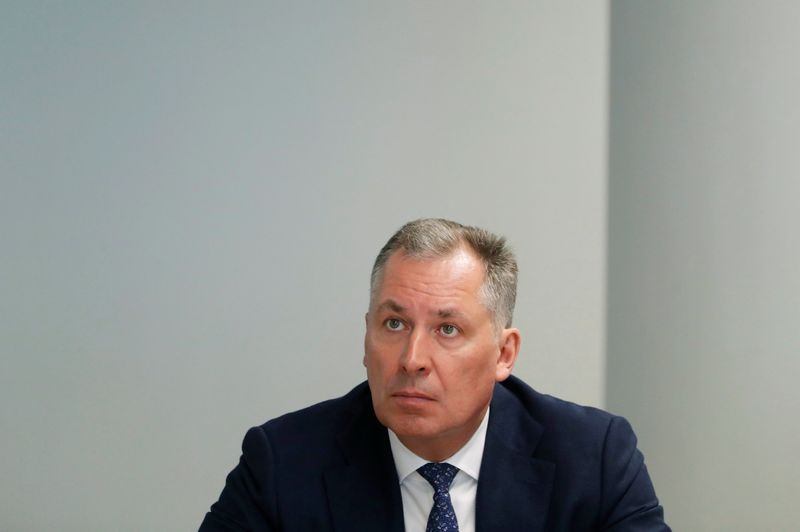MOSCOW (Reuters) – Russia’s Olympic Committee chief said on Wednesday he did not expect minors in the country’s Olympic team to be subjected to three weeks of quarantine if they are unable to get vaccinated against COVID-19 before next year’s Beijing Winter Games.
China, where measures to tackle COVID-19 are among the strictest in the world, requires athletes and team officials to be vaccinated to avoid 21 days in quarantine ahead of the Games, which run from Feb. 4 to Feb. 20. Some exceptions for medical reasons can granted on a case-by-case basis.
Russia has yet to approve its vaccine for use on minors, meaning that members of the Olympic team who are under 18 — including figure skaters — have not been vaccinated.
“As long as the health ministry doesn’t approve vaccination on minors, the athletes who are minors cannot be vaccinated for logical reasons,” Stanislav Pozdnyakov, president of Russia’s Olympic Committee, told reporters. “But the Olympic Playbook (guidelines) allows for such cases to be assessed on an individual basis.”
Pozdnyakov added there was an understanding among Olympic chiefs that athletes under 18 would not be forced to quarantine for three weeks in Beijing.
“Every person involved in sports knows that quarantine of any length makes practically makes participation in the Games pointless,” Pozdnyakov said. “This is why we are certain that the athletes on our team who are not yet vaccinated will get inoculated or get revaccinated.”
Pozdnyakov added that the country planned to send 216 athletes to Beijing but that the qualification process was still ongoing.
Russian athletes are currently barred from competing at major international events, including the Olympics, under their flag and with their anthem as part of doping sanctions.
In Beijing, Russians will compete as representatives of the Russian Olympic Committee under the acronym “ROC”.
(Reporting by Gabrielle Tétrault-Farber; Editing by Christian Radnedge)




















